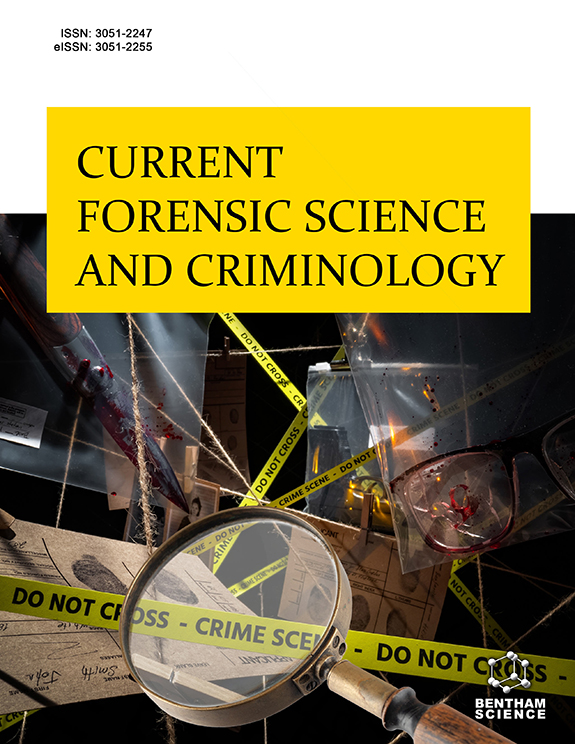
Current Forensic Science and Criminology
- Theoretical Criminology
- Sociological Criminology
- Psychological Criminology
- Biological and Biosocial Criminology
- Criminal Justice Studies
- Penology
- Victimology
- Comparative and International Criminology
- Critical Criminology
- Feminist Criminology
- White-Collar and Corporate Crime
- Environmental Criminology
- Cultural and Media Criminology
- Cyber Criminology
- Computational Forensics
- Criminalistics
- Environmental Forensics
- Food Forensics
- Forensic Accounting
- Forensic Anthropology
- Forensic Archaeology
- Forensic Art
- Forensic Astronomy
- Forensic Ballistics
- Forensic Biology
- Forensic Biomechanics
- Forensic Botany
- Forensic Chemistry
- Forensic Dactyloscopy
- Forensic Diatomology
- Forensic DNA Analysis
- Forensic Document Examination
- Forensic Ecology
- Forensic Engineering
- Forensic Entomology
- Forensic Entomotoxicology
- Forensic Geology
- Forensic Limnology
- Forensic Linguistics
- Forensic Mathematics
- Forensic Medicine
- Forensic Meteorology
- Forensic Neuropsychology
- Forensic Nursing
- Forensic Odontology
- Forensic Optometry
- Forensic Ornithology
- Forensic Palynology
- Forensic Photography
- Forensic Physics
- Forensic Podiatry
- Forensic Psychology
- Forensic Psychophysiology
- Forensic Radiology
- Forensic Sculpture
- Forensic Seismology
- Forensic Serology
- Forensic Toxicology
- Trace Evidence Analysis
- Wildlife Forensics
Editor-in-Chief:
-
Ricardo J. Dinis-OliveiraDepartment of Public Health and Forensic Sciences and Medical EducationFaculty of MedicineUniversity of PortoPortoPortugal
ISSN: 3051-2247 (Print)
eISSN: 3051-2255 (Online)



